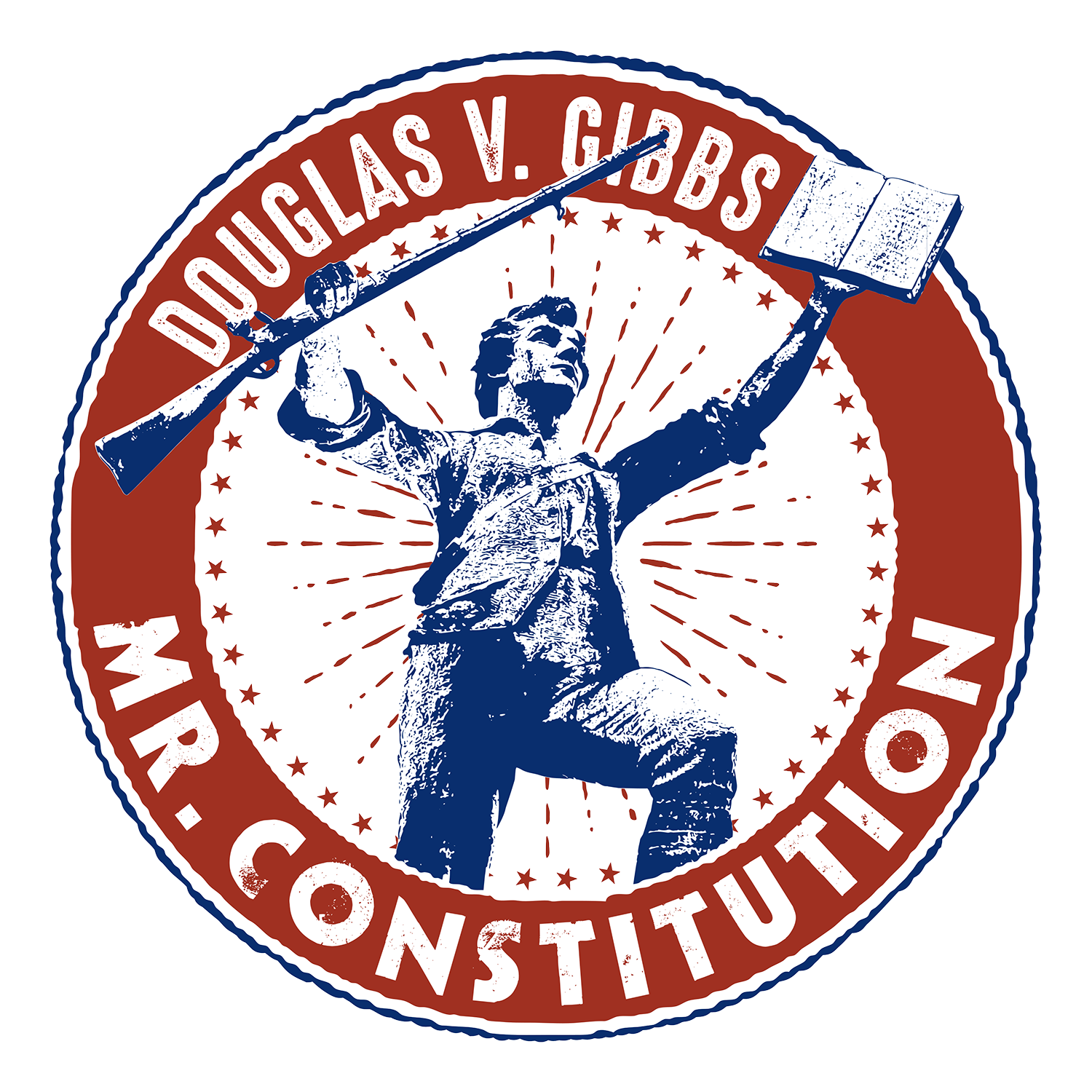By Douglas V. Gibbs
Author, Speaker, Instructor, Radio Host
| From a Concerned listener | |
| Message: | Dear mr. Constitution guy You most certainly be familiar with the words: In the United States, the sovereign authority is religious…there is no country in the world where the Christian religion retains a greater influence over the souls of men than in America, and there can be no greater proof of its utility and of its conformity to human nature than that its influence is powerfully felt over the most enlightened and free nation of the earth. In the United States, the influence of religion is not confined to the manners, but it extends to the intelligence of the people… Not until I went into the churches of America and heard her pulpits flame with righteousness did I understand the secret of her genius and power. America is great because America is good, and if America ever ceases to be good, America will cease to be great. Article writer opinion states: We need to dig deeper into what Tocqueville actually believed about American Christianity. It’s in Tocqueville’s description of the role of religious belief in Jacksonian America that the casual reader will most likely be led astray. Why is this? For the past couple of weeks, I have been writing about a reassuring adage popularly attributed to Alexis de Tocqueville’s Democracy in America, namely that “America is great because she is good.” …The main reason is that, when it comes to the Frenchman’s views on American Christianity, there are really two Tocquevilles. There’s the Tocqueville who underscores the importance of Christianity to American democracy, and the Tocqueville who raises questions about the influence of democracy on American Christianity. This is a historical problem, obviously, in that it makes it harder for us to figure out what Tocqueville is actually saying. But there’s a sense in which it’s also a moral problem… Consciously or unconsciously, we’ll be inclined to highlight the passages that reinforce what we already believe (or want to believe) and tune out the inconvenient parts that don’t advance our agendas. With regard to Democracy in America, if we’re not careful we’ll be all ears for the Tocqueville we want to hear and deaf to the Tocqueville we may need to hear. https://faithandamericanhistory.wordpress.com/2016/08/12/tocqueville-on-american-christianity-part-five-of-america-is-great-because-she-is-good/ |
My Response:
Dear listener,
The reality is, there is no pure and perfect example. Tocqueville, while impressed with the America he saw because everyone in Europe was telling him America was a failure, and while impressed that he saw politicians praying and pastors preaching politics, but neither controlling each other, he was a product of his environment. He feared religion and politics being uttered in the same sentence because his history in France was one of an established church that married the monarchy in a pairing of tyranny in the name of God. Then, when they tried to fix it with the French Revolution, the tyranny got worse. Tyranny, be it one leaning in a theocratic direction, or a collective secular one, is not a pleasant experience; but when that is pretty much all you know, liberty is confusing. That was Tocqueville’s situation.
As for the search for purity, even back then it was hard to find. John Adams, while a staunch supporter of the Revolution and the Christian foundation of the U.S. Constitution, as President he was happy to sign the sedition act which was horribly unconstitutional, and had the potential of shutting down religious speech in the future. Alexander Hamilton, while he loved the country, defended it with his life during the American Revolution, and most of what he wrote in the Federalist Papers was pretty impressive, his political ideas and political impact as Treasury Secretary (especially when it came to the unconstitutional concept of implied powers) was devastating to the foundation of the fledgling country. John Marshall was a defender of the Constitution in the Virginia Constitutional Convention Debate, and he has some pretty awesome quotes when it comes to the Christian foundation of our system, and the concepts surrounding localism and limited government, but then became one of the biggest historical enemies of the Constitution once he became Chief Justice of the United States. Andrew Jackson’s attitude towards the budget, national debt, and his desire to eliminate the Bank of the United States (along with his willingness to go head-to-head with the courts and challenge their powers by pointing out they had no constitutional enforcement powers) made him quite the star. He loved the Constitution, and fought to defend it. Unfortunately, he also fought to preserve slavery, fought to change America from a republic to a democracy, and was merciless regarding the Indian population (that’s right, he was the guy behind the Trail of Tears). My point. The closest to a one hundred percent constitutional defender might be folks like Jefferson, Madison, and later Calvin Coolidge, but the reality is, the chance of experiencing a pure true to the original intent constitutionalist, especially outside the ranks of the Founding Fathers, is rare and far between.
Blessings,
Douglas V. Gibbs
Fellow, American Freedom Alliance
Sentinel, Heritage Foundation
President, Constitution Association
District 28 Director, California Republican Assembly
Radio Host, KMET AM1490
Author

